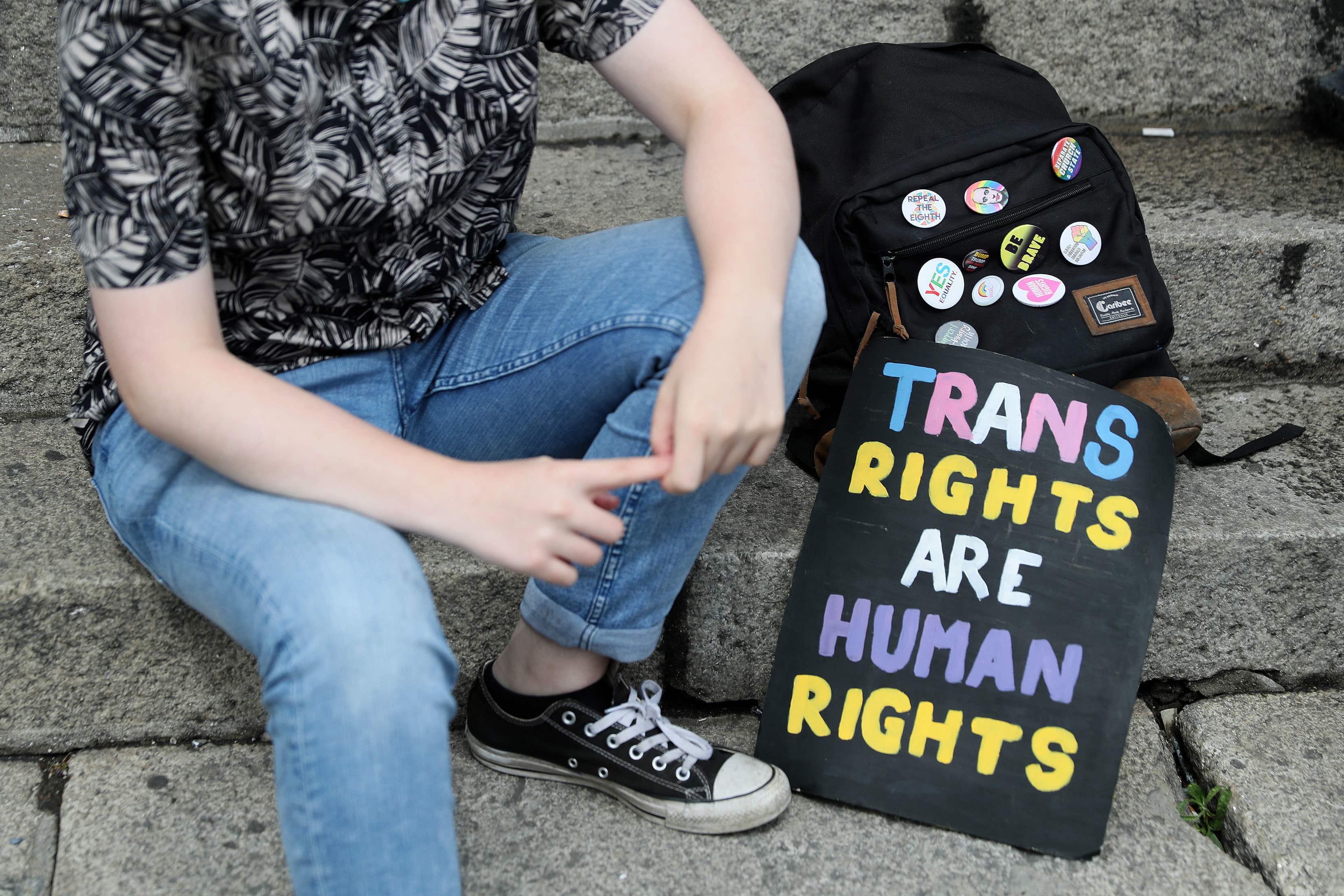Blocking Scotland’s gender reforms would be ‘disastrous’, campaigners claim
The UK Government is considering if it should seek a Section 35 order to prevent the Gender Recognition Reform Bill gaining royal assent.

Your support helps us to tell the story
From reproductive rights to climate change to Big Tech, The Independent is on the ground when the story is developing. Whether it's investigating the financials of Elon Musk's pro-Trump PAC or producing our latest documentary, 'The A Word', which shines a light on the American women fighting for reproductive rights, we know how important it is to parse out the facts from the messaging.
At such a critical moment in US history, we need reporters on the ground. Your donation allows us to keep sending journalists to speak to both sides of the story.
The Independent is trusted by Americans across the entire political spectrum. And unlike many other quality news outlets, we choose not to lock Americans out of our reporting and analysis with paywalls. We believe quality journalism should be available to everyone, paid for by those who can afford it.
Your support makes all the difference.Any action from the UK Government to block controversial reforms to the gender recognition process in Scotland would be “disastrous” for the trans community, campaigners have said.
Colin Macfarlane, director of nations at the charity Stonewall – which campaigns on behalf of lesbian, gay, bisexual and transgender people – said such action would be “yet another example of hampering progress on LGBTQ+ rights”.
He added it would also undermine a commitment given by Prime Minister Rishi Sunak to “govern with compassion”.
He was speaking after reports claimed Scottish Secretary Alister Jack has received initial advice from Attorney General Victoria Prentis and Lord Stewart of Dirleton, the Advocate General for Scotland, that the Bill could be challenged under the Scotland Act.
MSPs last month passed the Gender Recognition Reform (Scotland) Bill by 86 votes to 39, approving reforms which would allow trans people to obtain a gender recognition certificate (GRC) without the need for a medical diagnosis.
The Bill will also allow 16 and 17-year-olds to apply for a GRC for the first time, and would reduce the amount of time a person has to live in their acquired gender before they can be granted the document.
It was passed despite concerns from some politicians, women’s rights groups and others that the changes could impact on safe spaces for females.
At the time, Mr Jack said the UK Government shared “concerns that many people have regarding certain aspects of this Bill, and in particular the safety issues for women and children”.
He said the UK Government would look closely at the legislation and its impact on the UK-wide 2010 Equality Act – including whether a Section 35 order should be sought to stop the Bill gaining royal assent.
A Section 35 allows UK ministers to issue an order prohibiting Holyrood’s Presiding Officer from submitting a Bill for royal assent if there are reasonable grounds to believe it would adversely affect the operation of UK-wide equality legislation reserved to Westminster.
The UK Government has until January 19 to make such an order.
But Mr Macfarlane said: “We hope this is not the approach the Prime Minister wishes for the UK Government to take.”
He said the Scottish Government has an “overwhelming mandate to reform” the gender recognition process, and that the Bill is “one of the most consulted on in the Scottish Parliament’s history”.
He continued: “The new law was passed by a resounding cross-party majority, with support from MSPs in all parties.
“The Bill has been subject to extensive, appropriate scrutiny that has closely considered safeguards and interaction with UK-wide legislation, with almost 150 amendments debated and voted on.
“In May this year, the Scottish Parliament’s Equalities, Human Rights and Civil Justice Committee undertook 10 weeks of detailed evidence hearings on the proposals, hearing from a wide range of witnesses both supporting and opposed to the reforms.
“The UK Government has had more than six years to engage constructively with the Scottish Government over the proposals.
It would profoundly undermine relationships with the Scottish Government and damage the UK’s international reputation as a rights-respecting nation
“For the UK Government to seek to block implementation of this Act would be disastrous for trans people, who deserve far better from their Government.
“It would also profoundly undermine relationships with the Scottish Government and damage the UK’s international reputation as a rights-respecting nation.
“It will be yet another example of hampering progress on LGBTQ+ rights, and undermine the Prime Minister’s pledge to govern with compassion.”
He also said it would be “spiteful” if the UK Government refuses to recognise GRCs issued in Scotland.
“The UK Government already recognises equivalent birth certificates from all EU/EEA countries, including countries which have a de-medicalised model of legal gender recognition, so to refuse to recognise Scottish certificates would be a mistake, fly in the face of international best practice, and come across as spiteful,” Mr Macfarlane said.
A UK Government spokesperson said: “We share the concerns that others – including the Equality and Human Rights Commission and the UN Special Rapporteur on Violence Against Women and Girls – have set out with the Scottish Bill, particularly around safety issues for women and children.
“Our concerns include the protection of single-sex spaces, and the checks and balances included in the process of gaining a legal gender recognition certificate.
“We are still considering our next steps, and also the ramifications for the 2010 Equality Act and other UK-wide legislation.
“No decision has been made on a course of action at this time.”